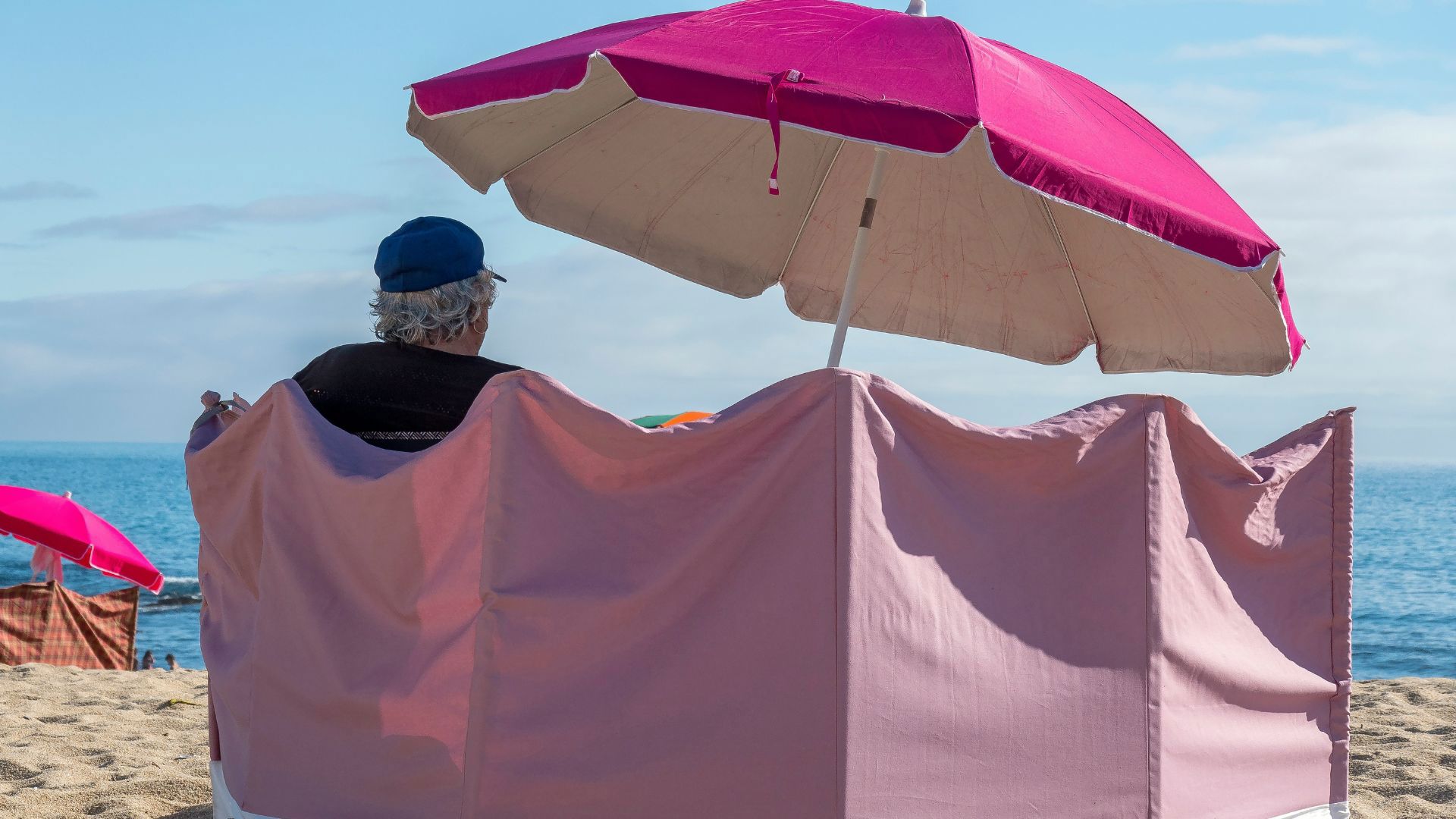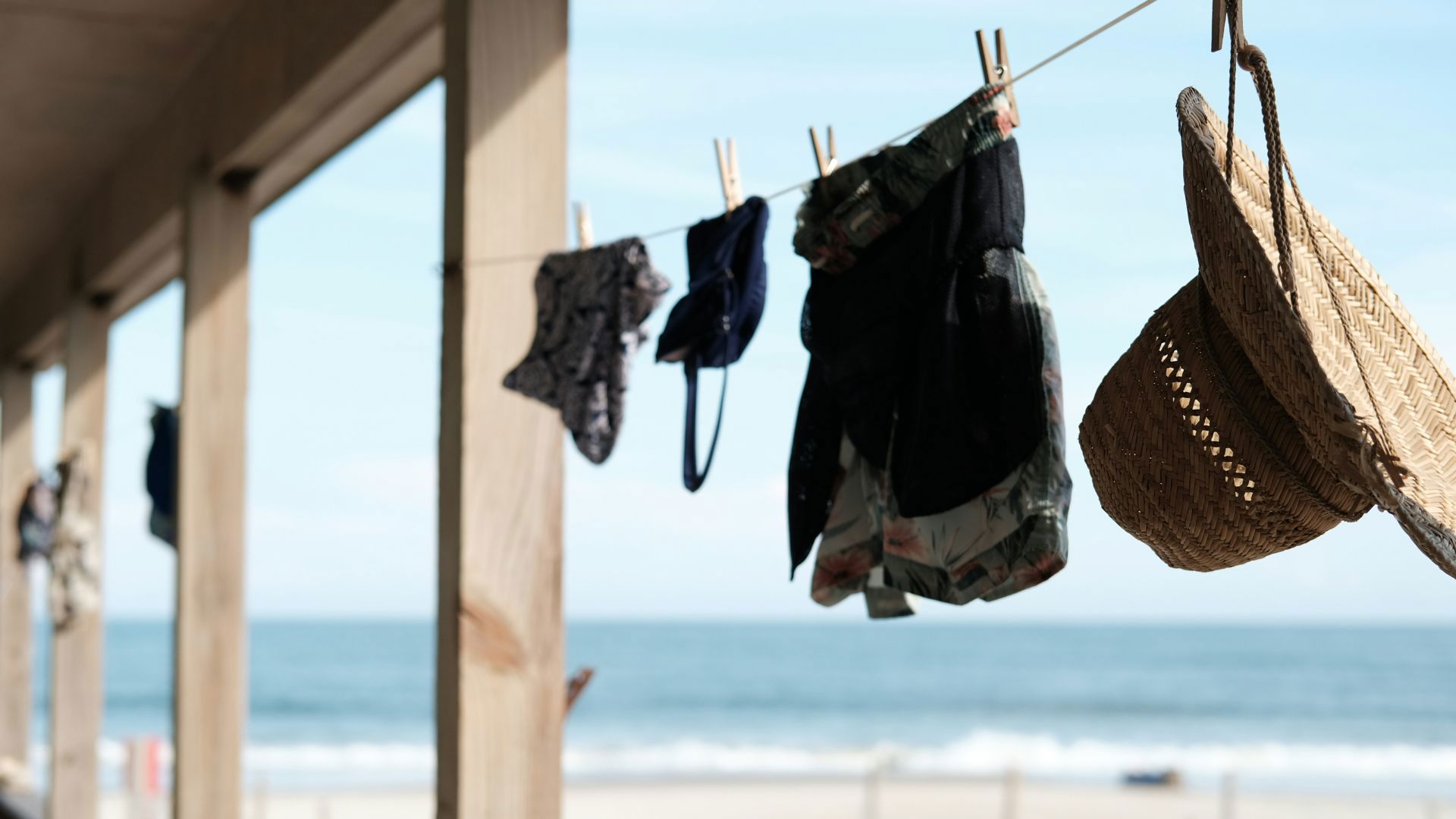
Staying Healthy in the Sun: How to Stay Cool on a Hot Day
Published: 25/06/2024
Earlier this week, the UK Health Security Agency (UKHSA) issued a Yellow Weather Warning Alert, indicating a period of hot weather from Monday 24th June to Thursday 27th June.
Each year, thousands of people are admitted to hospital as a result of heat-related ailments, such as severe sunburn, heat exhaustion or heatstroke. With temperatures soaring over the next few days, we all need to play our part in keeping our loved ones and elderly neighbours safe during the hot weather.
Today, we’re looking at some of the best ways to keep cool in hot weather, so you can enjoy the sun responsibly and remain healthy.


What are the health risks associated with hot weather?
The NHS highlights several key risks associated with hot weather:
- Dehydration
- Overheating
- Heat exhaustion or heatstroke
In order to stay safe, it’s important to recognise the signs of heat exhaustion and heatstroke.
These include:
- Headaches
- Confusion or dizziness
- Lack of appetite
- Clammy skin
- Excessive sweating
- Feeling sick
- Arm, leg or stomach cramps
- Rapid breathing or pulse
- Body temperature of 38*C or higher
- Excessive thirst
Heatstroke can occur when your body temperature reaches 40°C or higher. Its symptoms resemble those of heat exhaustion but can be more severe. Indicators of heatstroke include dry skin, a lack of sweating, difficulty breathing, and potentially losing consciousness.
To ensure you and your loved ones remain safe and comfortable during these high temperatures, we’ve compiled some top tips to help you stay cool and protected.
Tips on how to stay cool in heat
Hydration
Staying hydrated is crucial for your overall well-being, even if you don't feel thirsty.
As temperatures rise, our bodies tend to lose more water, which makes staying hydrated especially important during the summer months. Failing to replenish lost fluids can lead to dehydration, with symptoms such as increased fatigue, excessive thirst, dry mouth, headaches, darker urine, and dry skin.
Both children and older adults are particularly vulnerable to dehydration due to their bodies' responses to heat. Ensuring adequate water intake helps maintain overall health and prevents the adverse effects of dehydration.
To support this, make sure that fluids are always within easy reach. Keep water bottles and other hydrating drinks accessible so you can hydrate conveniently.
Optimise your living space
- Close Curtains During Peak Heat: To maintain a comfortable indoor temperature, keep curtains closed during the hottest parts of the day. This simple step can significantly reduce heat buildup.
- Ventilate During Cooler Hours: Open windows in the early morning or evening when the outside temperature is lower. This helps to naturally cool your living space.
Make use of fans and air conditioning units if you have them. These devices can make a big difference in maintaining a cool environment. If you do not have a fan or air conditioning, simply open your windows during cooler periods of the day or evening to let in the fresh air.
It's crucial to address overly hot environments promptly to ensure comfort and safety.
Limiting outdoor activities
If you need to go out, it's crucial to schedule outdoor activities during the cooler parts of the day, such as early morning or late evening, to avoid the peak heat. Take frequent breaks in shaded areas to stay refreshed and prevent overheating. This practice helps maintain comfort and also reduces the risk of heat-related illnesses during hot summer days.
Clothing
As the temperatures rise, it's important to ensure that our clients stay comfortable and protected. Here are some essential tips for dressing home care clients during the warmer months:
Lightweight breathable clothing
Choosing the right clothing can make a big difference in keeping cool. Opt for lightweight, loose-fitting, and light-coloured garments. These materials allow better air circulation and help in reflecting sunlight, preventing overheating. Fabrics like cotton and linen are excellent choices as they are breathable and gentle on the skin.
Essential sun protection
When you need to spend time outdoors, proper sun protection is crucial to prevent sunburn and heat-related illnesses. Here are some recommendations:
- Hats: Wide-brimmed hats provide shade and help protect the face, neck, and ears from direct sun exposure.
- Sunglasses: Use sunglasses with UV protection to safeguard your eyes from harmful rays.
- Sunscreen: Apply sunscreen with an SPF of 30 or higher to exposed skin. Reapply every two hours, especially if you are sweating or you have gone swimming.


Nutrition
One of the simplest and most delicious ways to beat the heat is by incorporating high-water content foods into your diet.
Ice lollies and ice creams are great for a quick cool-down. Choose ice lollies or sorbets made from natural fruit juices for a healthier option.
Water-rich fruits and vegetables are also an excellent way to keep yourself hydrated. Some popular options include:
- Watermelon: Juicy and refreshing, perfect for summer hydration with essential electrolytes.
- Oranges: Hydrating and rich in vitamin C, great as a snack or juice.
- Cucumbers: Over 95% water, refreshing in salads or as crunchy sticks with dip.
- Tomatoes: Versatile in salads, sandwiches, or salsas; hydrating and antioxidant-rich.
- Celery: Low-calorie snack, great with dips such as hummus or yoghurt.
- Lettuce: Perfect for summer salads, particularly iceberg or romaine, which boast a high water content.
How can CareGivers protect vulnerable people?
Here at Right at Home, we provide top-quality homecare to older people and those living with medical conditions. If you are a primary caregiver for a loved one, it is important to consider the above steps to ensure they remain safe and well during the hot weather.
As such, it is also a good idea to have an emergency plan in place, just in case you require medical assistance.
If you face a medical emergency, you can either call 999 for emergency services or 111 for medical advice. For non-urgent matters, it is a good idea to have your loved one’s GP details close at hand.
At Right at Home, we provide a variety of homecare services that can help your loved one stay happy and healthy during the summer months.
For example, our live-in care service ensures that a trained CareGiver will reside in the Client’s home, helping them maintain independence. During the warm weather, our care professionals will ensure your loved one follows the correct guidance. This allows primary carers – such as a family member – to enjoy the good weather and get a well-earned break with the knowledge their loved one is being supported properly.
If you’d like to know more about our services, head over to our dedicated homecare services page, or feel free to contact us.
